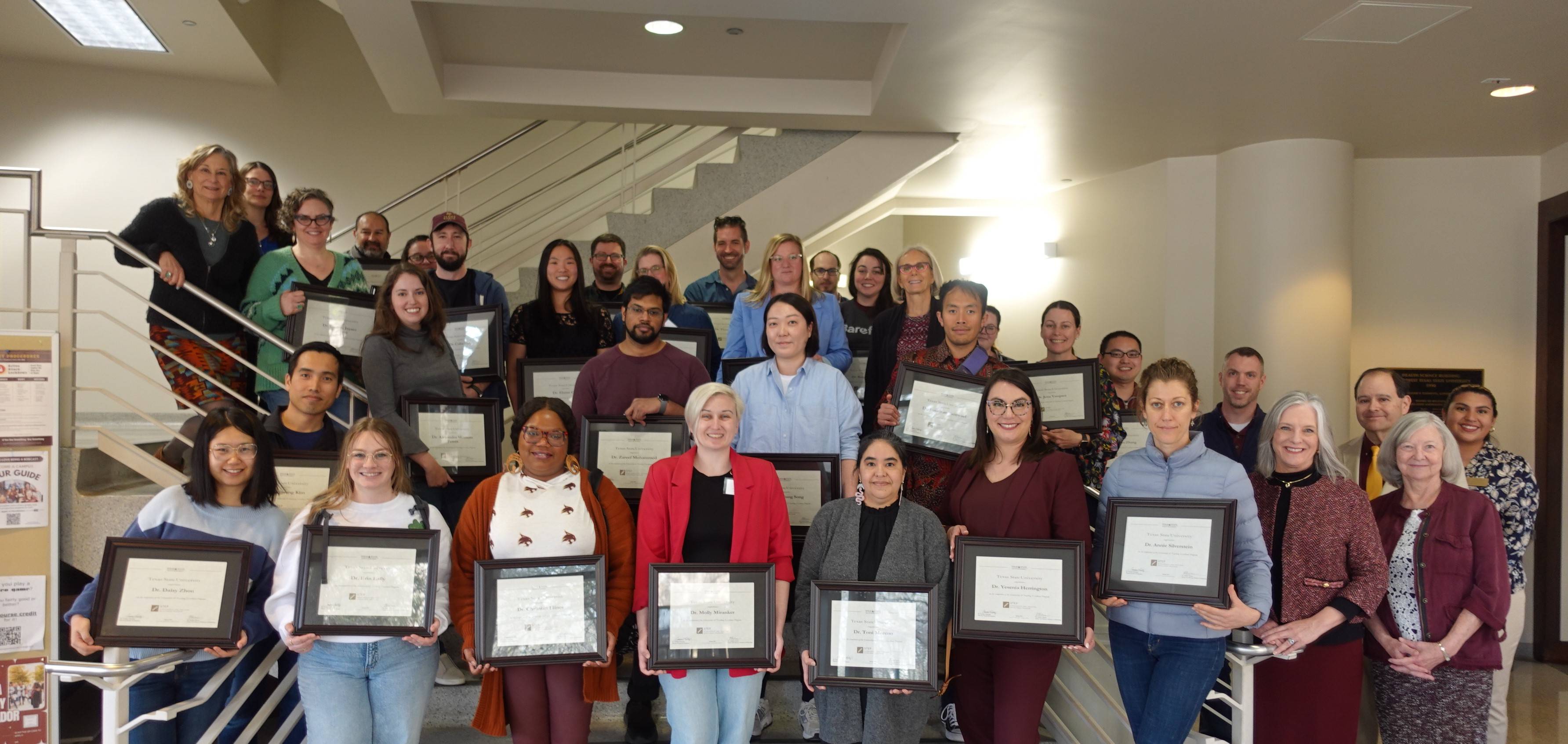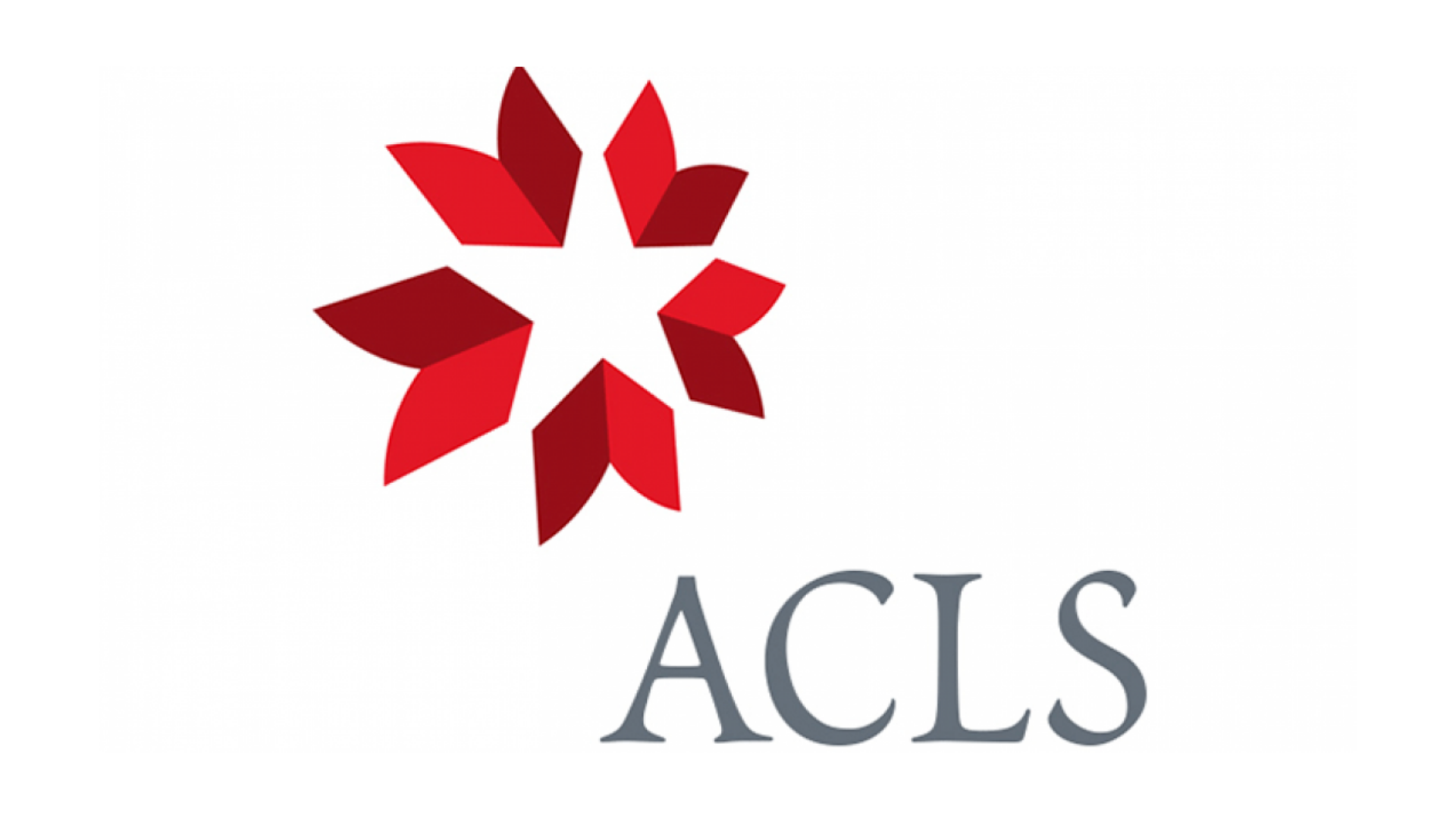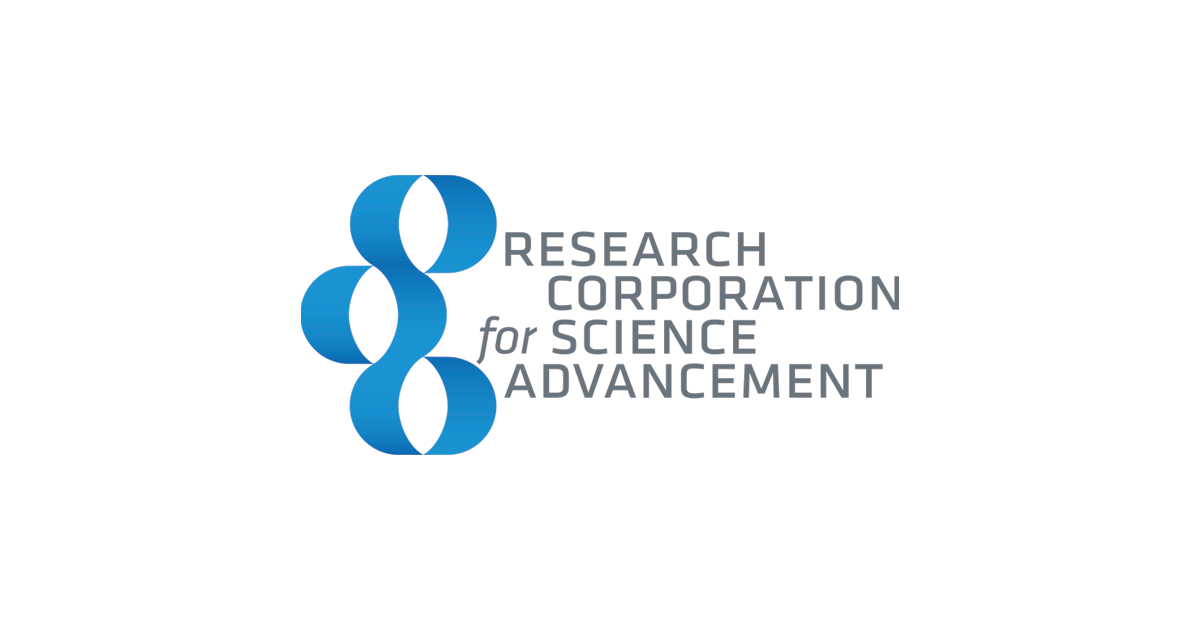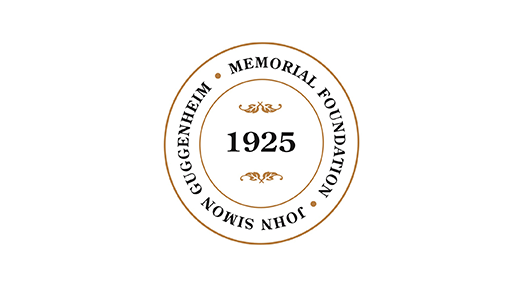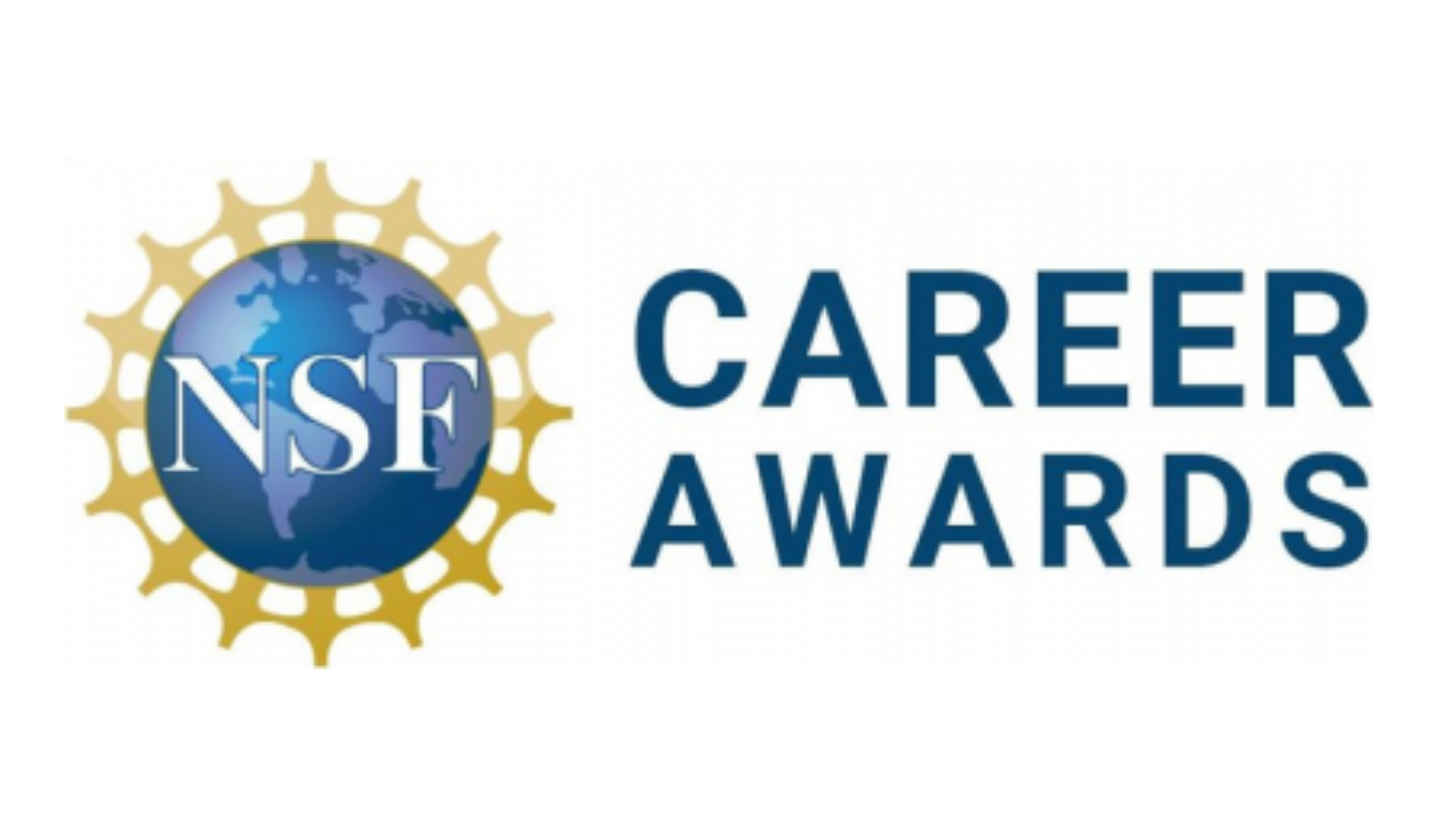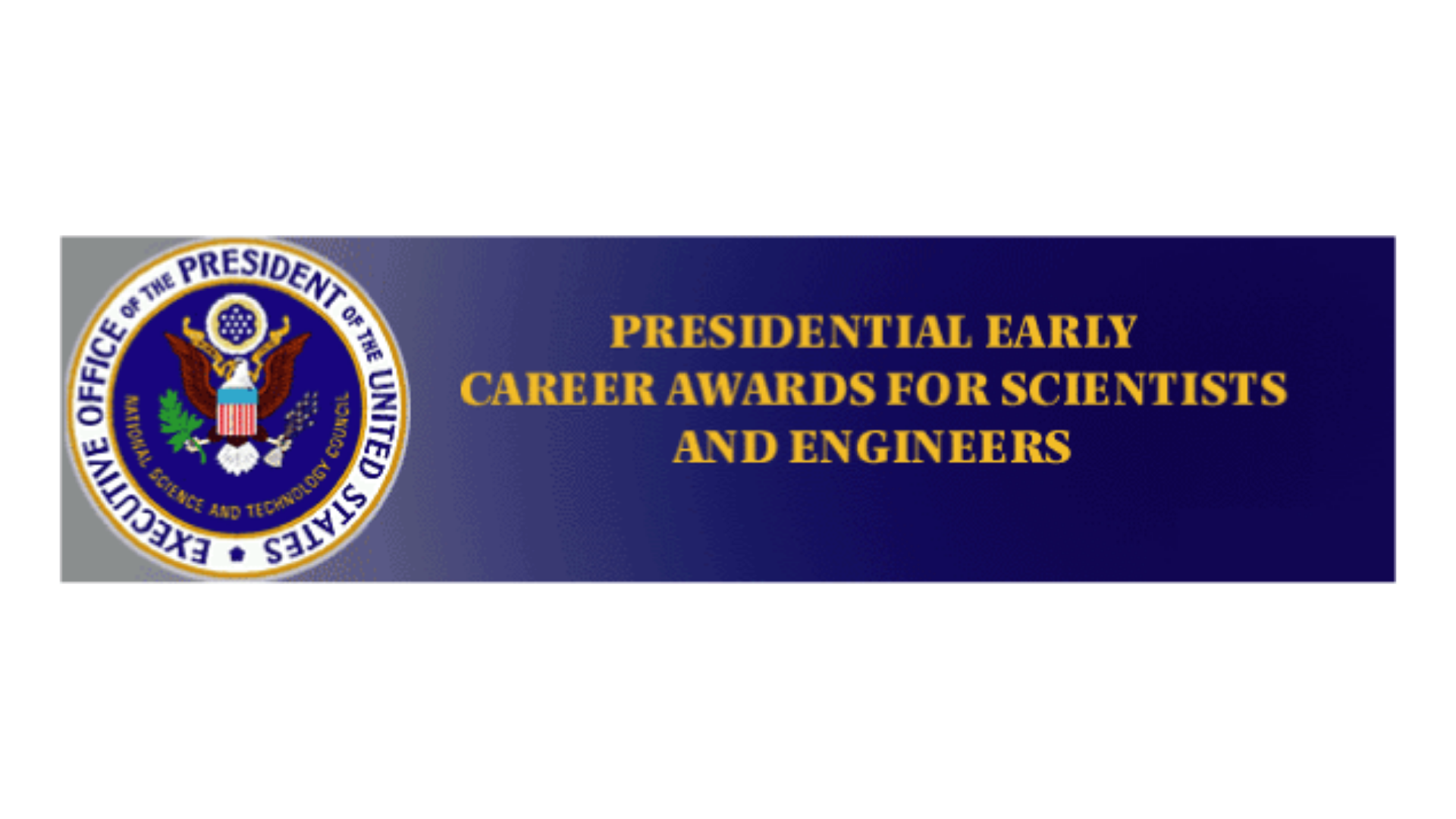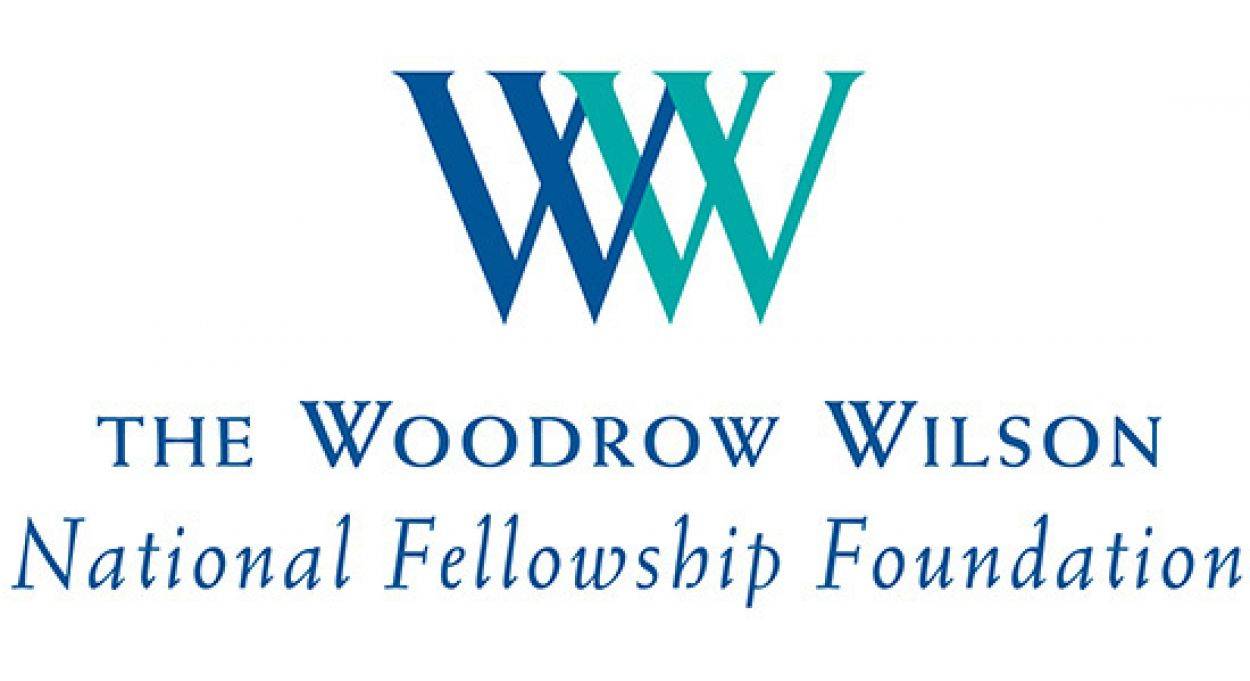Faculty Award Recipients
The award recipients listed below fulfill National Research University Fund standards for the “high quality faculty” criterion. The standards recognize award recipients employed in tenured/tenure-track positions at Texas State University.
American Council of the Learned Societies (ACLS) Fellow
The American Council of Learned Societies Fellows (ACLS) is a private, nonprofit federation of 74 national scholarly organizations, is the preeminent representative of American scholarship in the humanities and related social sciences.
Fellows
- Valentina Glajar (Modern Languages), 2019
- Justin Randolph (History), 2022
Cottrell Scholar
The Cottrell Scholar program honors and helps to develop outstanding teacher-scholars who are recognized by their scientific communities for the quality and innovation of their research programs and their potential for academic leadership.
Scholars
- Todd Hudnall (Chemistry and Biochemistry), 2016
John Simon Guggenheim Memorial Fellowship
Guggenheim Fellowships are intended for individuals who have already demonstrated exceptional capacity for productive scholarship or exceptional creative ability in the arts. Fellowships are awarded through two annual competitions: one open to citizens and permanent residents of the United States and Canada, and the other open to citizens and permanent residents of Latin America and the Caribbean. Candidates must apply to the Guggenheim Foundation in order to be considered in either of these competitions.
Fellows
- Johanna (Joey) Fauerso (Art and Design), 2022
- Cyrus Cassells (English), 2019
- Kathleen Peirce (English), 2007
NSF CAREER Awards
The CAREER Award is the National Science Foundation's most prestigious award in support of junior faculty. The awards are given to outstanding scientists who exemplify the role of teacher-scholars through research, education, and the integration of education and research.
The award comes with a federal grant for research and education activities for five consecutive years. The National Science Foundation (NSF) grants these awards once a year. The reviewing, award and selection process is one of the most competitive within the NSF.
Recipients
- William Boney (Mathematics), 2024
- José Martinez Hinestroza (Curriculum and Instruction), 2023
- Hwa Young Lee (Mathematics), 2023
- Nestor Guillen (Mathematics), 2022
- David Rodriguez (Biology), 2021
- Shetay N. Ashford-Henserd (Organization, Workforce, and Leadership Studies), 2021
- Yoichi Miyahara (Physics), 2021
- Hiro Tanaka (Mathematics), 2021
- Jennifer Czocher (Mathematics), 2018
- Chunmei Wang (Mathematics), 2018
- Jessica Bishop (Mathematics), 2016
- Todd Hudnall (Chemistry and Biochemistry), 2016
- Hong Gu Kang (Biology), 2016
- Oleg Komogortsev (Computer Science), 2013
- Apan Muhammad Qasem (Computer Science), 2013
- Nikoleta Theodoropoulou (Physics), 2013
- Mina Guirguis (Computer Science), 2012
- Alejandra Sorto (Mathematics), 2011
- Nihal Dharmasiri (Biology), 2009
- Ben Martin (Chemistry and Biochemistry), 2008
- Carlos Gutierrez (Physics), 1995
Presidential Early Career Awards for Scientists and Engineers (PECASE)
The Presidential Early Career Award for Scientists and Engineers (PECASE) embodies the high priority placed by the government on maintaining the leadership position of the United States in science by producing outstanding scientists and engineers and nurturing their continued development. The Awards identify a cadre of outstanding scientists and engineers who will broadly advance science and the missions important to the participating agencies.
The PECASE Awards are intended to recognize some of the finest scientists and engineers who, while early in their research careers, show exceptional potential for leadership at the frontiers of scientific knowledge during the twenty-first century. The Awards foster innovative and far-reaching developments in science and technology, increase awareness of careers in science and engineering, give recognition to the scientific missions of participating agencies, enhance connections between fundamental research and national goals, and highlight the importance of science and technology for the nation's future.
Recipients
- Oleg Komogortsev (Computer Science), 2017
Woodrow Wilson Fellows
Through its array of programs, Woodrow Wilson has been privileged to support the development of more than 27,000 leaders—teachers and scholars, leaders and business people, artists and innovators. Fellows from various Woodrow Wilson programs continue to publish new work and receive recognition for their teaching and research. Some of them are featured here.
Fellows
- Dennis Dunn (History), Fellow at the Woodrow Wilson Center for International Scholars, 1981, 1984, and 1985
- Stephen Seidman (Mathematics), Woodrow Wilson Fellowship, 1964
